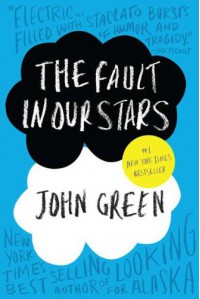45
Followers
14
Following
My only books were women's looks
Trying to move from GoodReads. Hope this site is a good fit!
Currently reading
The Two Krishnas: A Novel
The Diviners
My Blue Notebooks PA: The Intimate Journal of Paris's Most Beautiful and Notorious Courtesan
Code Name Verity
 I'm not ever sure where to begin. What a beautiful, brave, horrible, heartbreaking story. The things that love and hatred can move people to do is incredible.What a roller-coaster ride those last twenty or so pages were.I hate that it ended the way it did, but I also feel like it's the best ending there could be.Oh Maddie. Oh Jamie. Oh Julie!I went from having to force myself to read it (this is our book club book this month) to almost crying by the end. What a clever plot. The way it all comes together in the end. Really well done.Although there was some beautiful imagery, and it was very well written, the writing was also very heavy. Hence the 90 pages it took for me to begin to like it. I found myself skimming a lot at first.But Maddie and Julie's friendship was told so beautifully, and I loved being able to see bits and pieces of them through each other. I loved how you almost learned more about each of them through the other one's story.
I'm not ever sure where to begin. What a beautiful, brave, horrible, heartbreaking story. The things that love and hatred can move people to do is incredible.What a roller-coaster ride those last twenty or so pages were.I hate that it ended the way it did, but I also feel like it's the best ending there could be.Oh Maddie. Oh Jamie. Oh Julie!I went from having to force myself to read it (this is our book club book this month) to almost crying by the end. What a clever plot. The way it all comes together in the end. Really well done.Although there was some beautiful imagery, and it was very well written, the writing was also very heavy. Hence the 90 pages it took for me to begin to like it. I found myself skimming a lot at first.But Maddie and Julie's friendship was told so beautifully, and I loved being able to see bits and pieces of them through each other. I loved how you almost learned more about each of them through the other one's story.
The Queen of Attolia (The Queen's Thief, Book 2)
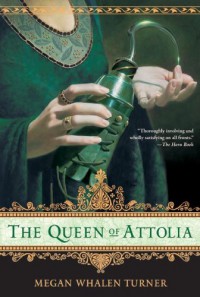 In perusing the GoodReads reviews for 'The Thief' after I read it, I was struck by the fact that the majority of reviewers seemed to have read it only to get to this book, persevering through it only because they had heard that the sequel was really good. (Implying, of course, that the Thief was not.) Even people who liked it seemed to say that they greatly preferred 'The Queen of Attolia'. Everyone seemed to agree that that was the better book.I'm not sure if I agree. They are very different books. 'The Thief' is very slow moving, almost more of a character study, until the action begins in the last third or so. 'The Queen of Attolia' has a lot more action. It's full of intrigue and treaties and wars and betrayals and alliances. However, I actually found myself skipping over some of the pages describing the various maneuvers and battles, and for a long time it seemed like there would be little of the 'stupid plans' and clever thefts I'd come to expect and crave from Eugenides. (Luckily I turned out to be wrong about that.)What with the different tone of the book, and the switch from first person to third, it took me a while to really get into the book, and at first I was sure I didn't like it as much. However, by the end of it, I loved it just as much as I had 'The Thief', but in a very different way, because as I said, I feel that they are two very different books.
In perusing the GoodReads reviews for 'The Thief' after I read it, I was struck by the fact that the majority of reviewers seemed to have read it only to get to this book, persevering through it only because they had heard that the sequel was really good. (Implying, of course, that the Thief was not.) Even people who liked it seemed to say that they greatly preferred 'The Queen of Attolia'. Everyone seemed to agree that that was the better book.I'm not sure if I agree. They are very different books. 'The Thief' is very slow moving, almost more of a character study, until the action begins in the last third or so. 'The Queen of Attolia' has a lot more action. It's full of intrigue and treaties and wars and betrayals and alliances. However, I actually found myself skipping over some of the pages describing the various maneuvers and battles, and for a long time it seemed like there would be little of the 'stupid plans' and clever thefts I'd come to expect and crave from Eugenides. (Luckily I turned out to be wrong about that.)What with the different tone of the book, and the switch from first person to third, it took me a while to really get into the book, and at first I was sure I didn't like it as much. However, by the end of it, I loved it just as much as I had 'The Thief', but in a very different way, because as I said, I feel that they are two very different books.
Looking for Alaska
 *Audiobook Edition.What a good book. I can understand now why so many people love it. It's so well done, the way the themes continue throughout the book, the way it all ties together.The book is written so that each chapter begins with the words: XX days before. I'm so glad that I managed to avoid all spoilers for the book, so I had no idea of the answer to 'Before what??'.And I'm so glad that the book continued for some many days after, as well.This book makes me want to write something meaningful. It's funny, because I now watch John Green's vlogs with his brother Hank, and partially because I was listening to the audio version, which of course is narrated by a man, but I could actually hear his voice saying some of the lines. The way of speaking and thinking in the book are so him.This book makes me feel the way that AFIOS did: I want to go and make every single person I know read it.
*Audiobook Edition.What a good book. I can understand now why so many people love it. It's so well done, the way the themes continue throughout the book, the way it all ties together.The book is written so that each chapter begins with the words: XX days before. I'm so glad that I managed to avoid all spoilers for the book, so I had no idea of the answer to 'Before what??'.And I'm so glad that the book continued for some many days after, as well.This book makes me want to write something meaningful. It's funny, because I now watch John Green's vlogs with his brother Hank, and partially because I was listening to the audio version, which of course is narrated by a man, but I could actually hear his voice saying some of the lines. The way of speaking and thinking in the book are so him.This book makes me feel the way that AFIOS did: I want to go and make every single person I know read it.
The Thief (The Queen's Thief, Book 1)
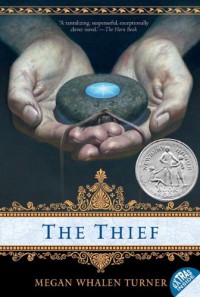 People had been recommending this book to me for ages, but it was always out at the library, so it took me a year or so to actually get around to reading it. I didn't realize until after I finished it and checked the date that it apparently came out way back in 1996. In a way, I wish I'd read it back then, because I think I would have loved it. This is not to say that I didn't like it now - I really enjoyed it - but I think I would have liked it even more back then. Many aspects of it - the [pseudo]Greek setting, the character from humbler origins, the gods and mythology - reminded me a lot of the historical fiction of Caroline Snedeker (The White Isle, The Forgotten Daughter) which I loved to pieces when I was younger. I am such a sucker for books where the gods and goddesses actually intervene in the protagonist's life.The book felt older to me, noticeably written before the current YA fad and the attendant conventions. It was also surprisingly short. I finished it in several hours spread over two days. I also did not see the twist coming at the end, but I loved it. I'm definitely going to check out the other books.
People had been recommending this book to me for ages, but it was always out at the library, so it took me a year or so to actually get around to reading it. I didn't realize until after I finished it and checked the date that it apparently came out way back in 1996. In a way, I wish I'd read it back then, because I think I would have loved it. This is not to say that I didn't like it now - I really enjoyed it - but I think I would have liked it even more back then. Many aspects of it - the [pseudo]Greek setting, the character from humbler origins, the gods and mythology - reminded me a lot of the historical fiction of Caroline Snedeker (The White Isle, The Forgotten Daughter) which I loved to pieces when I was younger. I am such a sucker for books where the gods and goddesses actually intervene in the protagonist's life.The book felt older to me, noticeably written before the current YA fad and the attendant conventions. It was also surprisingly short. I finished it in several hours spread over two days. I also did not see the twist coming at the end, but I loved it. I'm definitely going to check out the other books.
City of Bones (Mortal Instruments, Book 1)
 I'm going to be upfront here. As someone who was in the HP fandom while Cassie Claire was a BNF, it was completely impossible to come to this book without any preconceived ideas of it or its author. There is a lot of virulent hatred for Cassandra Clare, and by extension, for these books. I just read the comments on a thread about casting choices for the City of the Bones movie on ONTD, and the only ones who weren't anti-Cassandra Clare were from people asking why everyone hated the books/her so much. Supposedly she got her writing contract through the popularity of her fanfic (we all know publishers love a pre-existing audience) which is all well and good, except when your fanfic was the subject of an extensive plagiarism accusation. (Apparently publishers are not in fandom, or just value an audience over baggage.) If the series hadn't been so successful, people probably wouldn't care so much. But the series was immensely popular - the people who love Cassandra Clare and these books are every bit as passionate as the haters. Now maybe I'm biased, but I'm not quite sure why. I don't see any reason why she couldn't have gotten published even without her fanfic fame. Her writing in this book is fine. It's no worse than a lot of other debut authors in the paranormal YA genre. Sometimes it's good. Sure, a lot of the book is derivative, but then again there are a lot of derivative books. Honestly, it read like mediocre Holly Black. It had all the elements of the kind of paranormal book I love - but there was something missing. Is it because I came into it with so many preconceived notions? I'm not sure. I never read the Draco Trilogy, but Jace Wayland was so so obviously fanon!Draco that even though he was technically just the type of character I usually love, I didn't love him. He felt weirdly OOC, or out of place, like he didn't belong in his own story, and it was really disconcerting to me.
I'm going to be upfront here. As someone who was in the HP fandom while Cassie Claire was a BNF, it was completely impossible to come to this book without any preconceived ideas of it or its author. There is a lot of virulent hatred for Cassandra Clare, and by extension, for these books. I just read the comments on a thread about casting choices for the City of the Bones movie on ONTD, and the only ones who weren't anti-Cassandra Clare were from people asking why everyone hated the books/her so much. Supposedly she got her writing contract through the popularity of her fanfic (we all know publishers love a pre-existing audience) which is all well and good, except when your fanfic was the subject of an extensive plagiarism accusation. (Apparently publishers are not in fandom, or just value an audience over baggage.) If the series hadn't been so successful, people probably wouldn't care so much. But the series was immensely popular - the people who love Cassandra Clare and these books are every bit as passionate as the haters. Now maybe I'm biased, but I'm not quite sure why. I don't see any reason why she couldn't have gotten published even without her fanfic fame. Her writing in this book is fine. It's no worse than a lot of other debut authors in the paranormal YA genre. Sometimes it's good. Sure, a lot of the book is derivative, but then again there are a lot of derivative books. Honestly, it read like mediocre Holly Black. It had all the elements of the kind of paranormal book I love - but there was something missing. Is it because I came into it with so many preconceived notions? I'm not sure. I never read the Draco Trilogy, but Jace Wayland was so so obviously fanon!Draco that even though he was technically just the type of character I usually love, I didn't love him. He felt weirdly OOC, or out of place, like he didn't belong in his own story, and it was really disconcerting to me.
Shadow and Bone (Grisha Trilogy)
 So, I went into this book knowing a bunch about the worldbuilding the author had done, and nothing about the plot. Combine this with the fact that it reminded me a lot of Sheryll Jordan's Winter of Fire (poor girl whisking into a life of status and power by a mysterious leader figure, the whole idea of light vs dark or warmth vs cold) the plot definitely didn't take the direction I thought it would. I appreciate that as a story, it's probably better this way, but I was totally shipping the Alina/the Darkling, and it took a long time for me to adjust to/accept the fact that he was actually a cruel, manipulative megalomaniac, and that the guy who I'd overlooked as the childhood love interest who usually gets shunted aside for the new shiny paranormal guy was actual the One True Love. So I'm unsure how I feel about the second half of this book. It's not bad - as I said, it's probably a better story - but it just isn't what I wanted, exactly.I realized as I read this book that I have now read widely enough in this genre to identify most of the tropes that keep popping up, and I definitely identified a few here: the plain heroine, the hot oblivious (or is he?) childhood friend/love, the whole flight arc and wilderness survival arc bit, the servant BFF who is nicer than all the bitchy popular/court girls, etc etc. That said, there were a bunch of twists that I never saw coming, particularly in terms of the Darkling, probably because I mistakenly thought he was the 'hot, arrogant, paranormal lover'. And I'm sure this is what the author was banking on. (Speaking of which, it was brilliant to set up the priest as a red herring bad guy, with help from the parallels which you couldn't help drawing to Rasputin.) So I think it's cool that she was able to 1) use the tropes in a very original way and 2) use enough of them to make you assume she was using ones she wasn't.I also really like the worldbuilding, even though I did initially feel like I was sort of dropped into the world without enough explanation about it. I liked the idea of using Russia as a cultural touchstone.I did spend a lot of time being annoyed about how passive Alina seemed to be - everything that happened seemed to just be happening to her, every change in her circumstance wasn't something she had control over, even when she ran away it was because she was told to. But then when she finally took charge, it was really awesome. And maybe that was the point of all her passivity: to lead her to the point when she realized that she had to act. I also liked the idea of her power being so subject to her conscious or unconscious mindblocks and her conception of the truth.
So, I went into this book knowing a bunch about the worldbuilding the author had done, and nothing about the plot. Combine this with the fact that it reminded me a lot of Sheryll Jordan's Winter of Fire (poor girl whisking into a life of status and power by a mysterious leader figure, the whole idea of light vs dark or warmth vs cold) the plot definitely didn't take the direction I thought it would. I appreciate that as a story, it's probably better this way, but I was totally shipping the Alina/the Darkling, and it took a long time for me to adjust to/accept the fact that he was actually a cruel, manipulative megalomaniac, and that the guy who I'd overlooked as the childhood love interest who usually gets shunted aside for the new shiny paranormal guy was actual the One True Love. So I'm unsure how I feel about the second half of this book. It's not bad - as I said, it's probably a better story - but it just isn't what I wanted, exactly.I realized as I read this book that I have now read widely enough in this genre to identify most of the tropes that keep popping up, and I definitely identified a few here: the plain heroine, the hot oblivious (or is he?) childhood friend/love, the whole flight arc and wilderness survival arc bit, the servant BFF who is nicer than all the bitchy popular/court girls, etc etc. That said, there were a bunch of twists that I never saw coming, particularly in terms of the Darkling, probably because I mistakenly thought he was the 'hot, arrogant, paranormal lover'. And I'm sure this is what the author was banking on. (Speaking of which, it was brilliant to set up the priest as a red herring bad guy, with help from the parallels which you couldn't help drawing to Rasputin.) So I think it's cool that she was able to 1) use the tropes in a very original way and 2) use enough of them to make you assume she was using ones she wasn't.I also really like the worldbuilding, even though I did initially feel like I was sort of dropped into the world without enough explanation about it. I liked the idea of using Russia as a cultural touchstone.I did spend a lot of time being annoyed about how passive Alina seemed to be - everything that happened seemed to just be happening to her, every change in her circumstance wasn't something she had control over, even when she ran away it was because she was told to. But then when she finally took charge, it was really awesome. And maybe that was the point of all her passivity: to lead her to the point when she realized that she had to act. I also liked the idea of her power being so subject to her conscious or unconscious mindblocks and her conception of the truth.
The "It" Girls: Elinor Glyn and "Lucile"
 A dual-biography, of the sisters who grew up to become Lady Duff-Gordon, the fashion designer whose Maison Lucile 'personality dresses' took Edwardian London by storm, and Madame Elinor Glyn, author of the scandalous 'Three Weeks' and all-around authority on Romance and Sex-Appeal, or as she called it, 'IT'.In some ways I wish this had been released as two separate volumes, because the back and forth, every other chapter format got a bit confusing at times. But what a fascinating portrait of two very different women who happened to be there at just the right time when their obsessions and creative outpouring perfectly matched with what people wanted. Of course, because Lucy's gorgeous clothes and Elinor's glamorous books were so perfectly Edwardian, both of them had a hard time once the Great War had destroyed the last vestiges of the old world and ushered in the Roaring Twenties. TBC when I have more time...
A dual-biography, of the sisters who grew up to become Lady Duff-Gordon, the fashion designer whose Maison Lucile 'personality dresses' took Edwardian London by storm, and Madame Elinor Glyn, author of the scandalous 'Three Weeks' and all-around authority on Romance and Sex-Appeal, or as she called it, 'IT'.In some ways I wish this had been released as two separate volumes, because the back and forth, every other chapter format got a bit confusing at times. But what a fascinating portrait of two very different women who happened to be there at just the right time when their obsessions and creative outpouring perfectly matched with what people wanted. Of course, because Lucy's gorgeous clothes and Elinor's glamorous books were so perfectly Edwardian, both of them had a hard time once the Great War had destroyed the last vestiges of the old world and ushered in the Roaring Twenties. TBC when I have more time...
Bitterblue (Graceling)
 I'm not sure where to start with this review, especially coming straight from reading the author's extensive thankyous, it seems like such a huge undertaking. What an ambitious book - it feels so immense and dense to me, afterwards. There was just so much in this book, two whole worlds, different languages, dozens of ciphers, etc etc.In many ways it feels like a direct product of all the confusion and layers of truth, lies and memory left in the wake of King Leck's 35 year reign. The atmosphere was pitch perfect, it really managed to suck me in and get me caught in the world. I loved how Bitterblue's struggle to figure out not only who she was but who she had been, and who everyone around her was and had been coincided with a kind of coming of age story. I really appreciate the things Cashore has done in Bitterblue, and to a lesser extent Graceling, to ignore established literary romance conventions: Po and Katsa are still lovers and not husband and wife, the book follows up the healthy sexual relationship enjoyed by the hero and heroine in Graceling with a heroine who loses her virginity to a boy she loves and who loves her(and who also happens to sleep with a lot of men) but may or may not end up with him. (Personally, I was kind of rooting for her to get with Giddon.)Not to mention the numerous gay and lesbian characters in the book: Skye, Bann and Raffin (I totally guessed they were together in Graceling and was so happy to be proven right!)Teddy and Saf's sisters (whose names I forget right now) and Saf himself being bi.
I'm not sure where to start with this review, especially coming straight from reading the author's extensive thankyous, it seems like such a huge undertaking. What an ambitious book - it feels so immense and dense to me, afterwards. There was just so much in this book, two whole worlds, different languages, dozens of ciphers, etc etc.In many ways it feels like a direct product of all the confusion and layers of truth, lies and memory left in the wake of King Leck's 35 year reign. The atmosphere was pitch perfect, it really managed to suck me in and get me caught in the world. I loved how Bitterblue's struggle to figure out not only who she was but who she had been, and who everyone around her was and had been coincided with a kind of coming of age story. I really appreciate the things Cashore has done in Bitterblue, and to a lesser extent Graceling, to ignore established literary romance conventions: Po and Katsa are still lovers and not husband and wife, the book follows up the healthy sexual relationship enjoyed by the hero and heroine in Graceling with a heroine who loses her virginity to a boy she loves and who loves her(and who also happens to sleep with a lot of men) but may or may not end up with him. (Personally, I was kind of rooting for her to get with Giddon.)Not to mention the numerous gay and lesbian characters in the book: Skye, Bann and Raffin (I totally guessed they were together in Graceling and was so happy to be proven right!)Teddy and Saf's sisters (whose names I forget right now) and Saf himself being bi.
Edwardian Lady
 I got this book out of the library after reading a review on Edwardian Promenade. It was really wonderful, both the text and the numerous pictures. It wasn't all that ideal for carting along with me places, since it's about the size of a big magazine or notebook, but I really enjoyed reading it. It gave a very detailed picture of not only the basics of live in Edwardian England from childhood through adulthood, but it also had a lot of specifics. All the usual suspects showed up: Consuelo Vanderbilt, Jennie Jerome, Lady Duff Gordon, Lily Langtry, etc, but also some women whose stories were new to me, like Loelia Ponsonby.
I got this book out of the library after reading a review on Edwardian Promenade. It was really wonderful, both the text and the numerous pictures. It wasn't all that ideal for carting along with me places, since it's about the size of a big magazine or notebook, but I really enjoyed reading it. It gave a very detailed picture of not only the basics of live in Edwardian England from childhood through adulthood, but it also had a lot of specifics. All the usual suspects showed up: Consuelo Vanderbilt, Jennie Jerome, Lady Duff Gordon, Lily Langtry, etc, but also some women whose stories were new to me, like Loelia Ponsonby.
Graceling
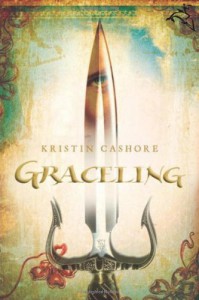 In many ways this book reminded me of Grave Mercy when I started it, same medieval type fantasy setting with kings ans courts and intrigues, and a heroine who kills in the name of a monarch. But by the time I finished, it reminded me of a lot of books, and also of none. I really liked it. I loved the characters, and how good the author is at setting mood. I loved a lot of things about it, really.
In many ways this book reminded me of Grave Mercy when I started it, same medieval type fantasy setting with kings ans courts and intrigues, and a heroine who kills in the name of a monarch. But by the time I finished, it reminded me of a lot of books, and also of none. I really liked it. I loved the characters, and how good the author is at setting mood. I loved a lot of things about it, really.
To Marry an English Lord or, How Anglomania Really Got Started
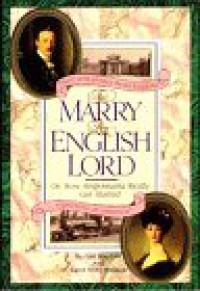 One of the slew of books related to Downton Abbey to be released after the show's success, in this case, the book is a re-release of a 1989 non-fiction book, which (much to the publisher's delight)has a cover blurb from Julian Fellows, creator of Downton Abbey himself. To further drive the point home, the cover also bears the words: "An inspiration for the popular Television Series Downton Abbey."But for all the purported connection the part of the plot most literally inspired by the book - the marriage between American heiress Cora and impoverished peer Lord Grantham - takes place some nineteen years prior to the first episode of the show. The book actually covers the period from about 1871 to 1910, which means that the ends just between the timeline of the show begins.That said, I'm glad that the Downton Abbey craze lead to this book being republished, because regardless of how relatively tenuous the connection to the show is, it's a fabulous book. The writing is exciting, and not at all dry; the authors are capable of capturing all sorts of interesting personalities, and most of all, it's incredibly comprehensive. I wouldn't be surprised if the book had also inspired numerous historical fiction writers, because it covers every single detail of the time period you'd ever need. The main narrative, which details the trend of American heiresses marrying impoverished English peers for their titles is split up by two-page spreads and inserts giving detailed information on the social mores of the time, the differences between American and British society, biographies of various important people, overviews of the types of heiress hunting swains, and New York fathers, timetables for sojourns in Newport, the staff of an English manor, lists of everything from prerequisites for an American heiresses London campaign to how to keep the Prince happy at a 'Friday to Sunday' house party, and of course, a lot of photographs of gorgeous heiresses and handsome peers.I thoroughly enjoyed every page of this book. The only bad thing is that it made me want a Downton Abbey prequel...
One of the slew of books related to Downton Abbey to be released after the show's success, in this case, the book is a re-release of a 1989 non-fiction book, which (much to the publisher's delight)has a cover blurb from Julian Fellows, creator of Downton Abbey himself. To further drive the point home, the cover also bears the words: "An inspiration for the popular Television Series Downton Abbey."But for all the purported connection the part of the plot most literally inspired by the book - the marriage between American heiress Cora and impoverished peer Lord Grantham - takes place some nineteen years prior to the first episode of the show. The book actually covers the period from about 1871 to 1910, which means that the ends just between the timeline of the show begins.That said, I'm glad that the Downton Abbey craze lead to this book being republished, because regardless of how relatively tenuous the connection to the show is, it's a fabulous book. The writing is exciting, and not at all dry; the authors are capable of capturing all sorts of interesting personalities, and most of all, it's incredibly comprehensive. I wouldn't be surprised if the book had also inspired numerous historical fiction writers, because it covers every single detail of the time period you'd ever need. The main narrative, which details the trend of American heiresses marrying impoverished English peers for their titles is split up by two-page spreads and inserts giving detailed information on the social mores of the time, the differences between American and British society, biographies of various important people, overviews of the types of heiress hunting swains, and New York fathers, timetables for sojourns in Newport, the staff of an English manor, lists of everything from prerequisites for an American heiresses London campaign to how to keep the Prince happy at a 'Friday to Sunday' house party, and of course, a lot of photographs of gorgeous heiresses and handsome peers.I thoroughly enjoyed every page of this book. The only bad thing is that it made me want a Downton Abbey prequel...
Insurgent (Divergent)
 This is a very different book from Divergent. In a way, it almost makes Divergent feel like a prequel, a book to set up the worldbuilding and characters before the real story could begin. It's full of tense moments, daring escapes and rescues, and a lot of hard choices. There are also a lot of emotional highs and lows: Tris experiences the extremes of grief, guilt, rage, despair and love. I had some issues with keeping some of the minor characters names straight, and some of the internal logic, but when all is said and done, I really enjoyed it.
This is a very different book from Divergent. In a way, it almost makes Divergent feel like a prequel, a book to set up the worldbuilding and characters before the real story could begin. It's full of tense moments, daring escapes and rescues, and a lot of hard choices. There are also a lot of emotional highs and lows: Tris experiences the extremes of grief, guilt, rage, despair and love. I had some issues with keeping some of the minor characters names straight, and some of the internal logic, but when all is said and done, I really enjoyed it.
Lord Dismiss Us (Phoenix fiction)
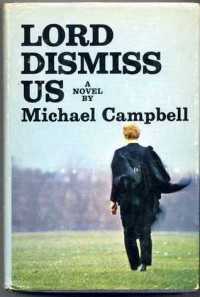 This reminded me a lot of The Charioteer, in terms of prose style. It was very dense, and went back and forth between people's heads. Sometimes it read like something that had been translated from another language, with the way things seemed out of context sometimes. I think it's just the difference between 1960s dialogue and writing and nowadays, because all the books I've read written around this period share that peculiar characteristic. I felt a little confused about just what the book was trying to tell me, in terms of homosexuality as something apart from the kind of romances that happened as a matter of course between boys in public schools. But I wonder how much of that was the time period - I wonder what the book would have been like if it had been written now. All that aside, this was a very poignantly written record of that insulated world of the boy's school and that period between boy and adult. It had some very beautiful and insightful passages.
This reminded me a lot of The Charioteer, in terms of prose style. It was very dense, and went back and forth between people's heads. Sometimes it read like something that had been translated from another language, with the way things seemed out of context sometimes. I think it's just the difference between 1960s dialogue and writing and nowadays, because all the books I've read written around this period share that peculiar characteristic. I felt a little confused about just what the book was trying to tell me, in terms of homosexuality as something apart from the kind of romances that happened as a matter of course between boys in public schools. But I wonder how much of that was the time period - I wonder what the book would have been like if it had been written now. All that aside, this was a very poignantly written record of that insulated world of the boy's school and that period between boy and adult. It had some very beautiful and insightful passages.
Cross My Heart
 As the second daughter, Laura is shut up in a convent while her beloved sister Beatrice is living a life of luxury, engaged to a wealthy, powerful man named Vincenzo. When Laura is suddenly summoned to her father's house in Venice, she thinks that all her prayers have been answered. But when she arrives in Venice, she learns that her sister is dead, and she is set to marry Vincenzo in Beatrice's place. When her bridegroom turns out to be a disgusting old man, she is approached by a secret society of women who promise her they can take her of her husband to be, in exchange for a secret...This was a quick read. I finished it in about 2 hours. But I wish it had been longer. I liked the concept, and the setting. The Venice of the period was quite vivid (I'm not surprised to see that the author lived there are a child) and I thought it was the perfect setting for a story revolving around secrets, vendettas, and murders. But I wish that things had been fleshed out more. I would have loved a more dense narrative, and a more complex plot. I found the reveals to be a bit simplistic. The romance felt a little rushed. I think all these problems could have been fixed if the book had been longer. As it was, it felt a bit unsatisfying which is disappointing, because I liked the characters, and the concept, just not the execution.
As the second daughter, Laura is shut up in a convent while her beloved sister Beatrice is living a life of luxury, engaged to a wealthy, powerful man named Vincenzo. When Laura is suddenly summoned to her father's house in Venice, she thinks that all her prayers have been answered. But when she arrives in Venice, she learns that her sister is dead, and she is set to marry Vincenzo in Beatrice's place. When her bridegroom turns out to be a disgusting old man, she is approached by a secret society of women who promise her they can take her of her husband to be, in exchange for a secret...This was a quick read. I finished it in about 2 hours. But I wish it had been longer. I liked the concept, and the setting. The Venice of the period was quite vivid (I'm not surprised to see that the author lived there are a child) and I thought it was the perfect setting for a story revolving around secrets, vendettas, and murders. But I wish that things had been fleshed out more. I would have loved a more dense narrative, and a more complex plot. I found the reveals to be a bit simplistic. The romance felt a little rushed. I think all these problems could have been fixed if the book had been longer. As it was, it felt a bit unsatisfying which is disappointing, because I liked the characters, and the concept, just not the execution.

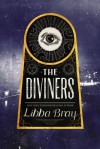





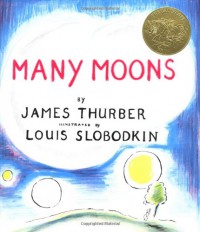
 1
1
